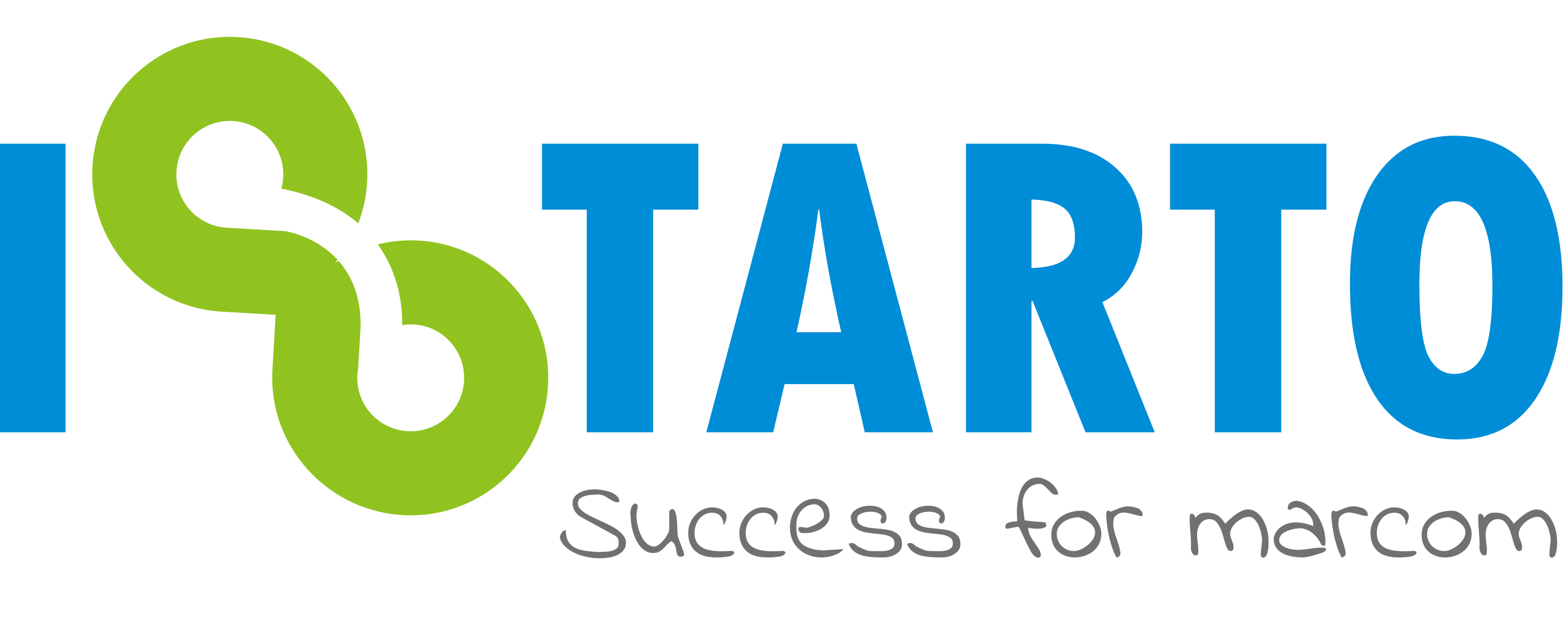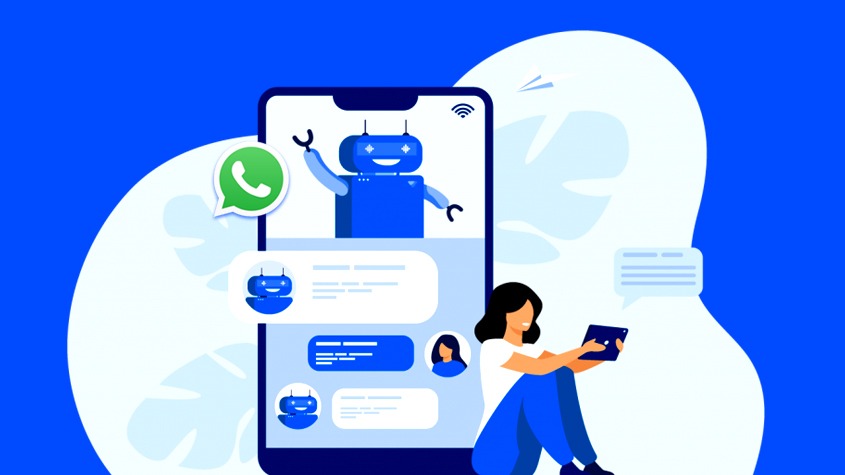WhatsApp marketing has been effectively stealing the thunder from social media and other online communication strategies for a few years now. However, it seems unlikely that this hype will subside anytime soon. Add chatbots to the mix and you’ve got a real marketing game-changer.
But where do you start?
Even with its business features, WhatsApp is not the most popular channel when it comes to advertising.
Could your business marketing operations benefit from a WhatsApp bot? What opportunities and challenges do you need to be aware of? How do you use WhatsApp for business?
Don’t worry, we’ve got you covered – completing the closed loop of customer acquisition
A brief history of WhatsApp marketing
While WhatsApp’s advertising and marketing may make it feel like they’ve been around forever, their history is very, very brief and surprisingly recent.
When former Yahoo employees Jan Koum and Brian Acton founded WhatsApp in 2009, the app became extremely popular but still had no commercial presence. Even after being acquired by Facebook for $19 billion in 2014, its co-founders pledged to make WhatsApp ad-free.
Over the years, WhatsApp has introduced several new features to fend off competition, such as improved groups functionality and Snapchat-like 24-hour story updates, while others, such as support for playing Instagram and Facebook videos, are meant to improve integration within the app Facebook ecosystem.
In May 2018, Koum announced he was leaving WhatsApp amid strategic conflicts as parent company Facebook began to push for a business- and ad-friendly model. Hence, interest in WhatsApp marketing started to pick up with new business-friendly features:
- Free WhatsApp Business app for Android launched in select markets
- Launch of revenue-generating WhatsApp Business API
- Global launch of WhatsApp Business app for iOS
- Launch ads in WhatsApp Status Stories
Why should you use WhatsApp for business marketing?
WhatsApp is the undisputed most popular messaging app. In 2020, the app surpassed its own monthly active user record, growing from 1.5 billion in December 2017 to 1.6 billion in April 2019 to 2 billion in April 2020. Currently, WhatsApp is the leading messaging app in 133 countries around the world:

No other social and messaging app has comparable reach. Additionally, WhatsApp users tend to be very active, sending over 65 billion messages every day.
For businesses, WhatsApp provides a product catalog to choose from that best suits their needs and allows them to connect with their target audience.
WhatsApp Business App vs. WhatsApp Business API
Before we delve into WhatsApp marketing, it’s crucial to address the features and differences between WhatsApp Business and WhatsApp Business API, as these two services are very different.
WhatsApp business app
The WhatsApp Business app is a free (standalone) app designed to support small and medium-sized businesses and connect them with their customers. Essentially, it allows brands to prioritize customer messages and respond quickly. If you’ve been relying solely on WhatsApp web functionality, this is definitely an upgrade.
Since privacy remains at the core of WhatsApp, you can only contact users who have given your consent or initiated the contact. Features include:
- Business Profile: The WhatsApp Business app allows brands to create an official business profile that contains relevant information such as the company’s physical address, phone number, description, email, and website link.
- Messaging Tool: WhatsApp Business App allows businesses to set up quick replies, messages and greetings.
- Tags: The app allows you to apply various tags to active chats. For example, you can label a chat as “New Customer” or “Complaint” to get an overview of customer requests. You can use preset tags or create your own.
- Statistics: WhatsApp also provides some basic statistics, such as the number of messages sent and delivered, and the number of messages actually opened and read.
- WhatsApp Web: Brands can use WhatsApp Business on their desktop to send and receive messages, making management more business-friendly.
WhatsApp Business API
WhatsApp Business API is not an application. It requires a complex technical setup and allows you to integrate your WhatsApp business profile with the systems you already use and use it as an intermediary between your business and your customers. Since the WhatsApp Business API is still in beta and the process is quite complicated.
The WhatsApp Business API has two main functions, each with specific message types:
- Notifications in the form of WhatsApp template messages (off-site news alerts): This feature allows brands to send message-driven notifications to customers. They are paid and can only be sent when the predefined conditions of the message template are met. Pre-approved notification message templates include pre-order reminders or delivery updates. These notifications are manually verified and cannot be used for promotional purposes. Not sure what they look like? Explore our collection of sample WhatsApp template messages.
- Customer support in the form of WhatsApp conversation messages: This feature allows you to follow its instructions exactly – provide customer support. In this case, there is no limit to the number of messages that can be exchanged within the session. WhatsApp conversation messages are any messages sent and received in response to a user-initiated conversation. A new session is activated every time a user sends you a message/request and lasts 24 hours from the most recent user message. If you fail to reply within that time, the only way to re-initiate the conversation is to use a paid WhatsApp template message.
WhatsApp Business API enables you to perform extremely complex actions and actions, one of which is building relationships with your target audience through chatbots.
The biggest advantage of the API is that you can design and build WhatsApp bots to automate the most common processes and requests that customers encounter.
You can use a bot to collect feedback or have customers and prospects fill out forms through a conversation. Best of all, you can seamlessly extract and update submitted data to your CRM, Excel sheets, and other databases.
The game-changing WhatsApp chatbot
Chatbots on WhatsApp not only allow you to get in touch with your customers and prospects in the most comfortable way. They also allow you to automate that communication.
We are in an experience economy. Customers are demanding much more from brands and businesses than before. In fact, many people believe that the experience of interacting with a business is more important than the price tag.
Advanced technology makes everything faster. Therefore, in this day and age, consumers expect prompt personalized attention, instant assistance, and memorable interactions.
Chatbots offer businesses the opportunity to maintain automation while maintaining personalization. Even better, users predict some useful chatbot uses:
Bots’ ability to automate key business processes while maintaining a human touch on the world’s most popular messaging app makes bots one of WhatsApp’s most promising marketing tools.
What does it take to create a WhatsApp bot?
The process of creating a functional bot is a bit time-consuming, but definitely worth it.
1. Get WhatsApp API approval
Then, naturally, you need to apply for the official WhatsApp Business API. As mentioned, the API is still in BETA mode, so WhatsApp is currently targeting mid-sized and enterprise companies. The process involves submitting your company name, URL, and the name and contact information of a company representative and can take up to 4 weeks.
You can do this yourself or let your WhatsApp Business Solutions Provider (which can be your chatbot building platform) help you in the process. For example, Landbot can act as a management intermediary, overseeing applications and settings.
2. Choose a chatbot builder
It is highly recommended that you use the bot builder when creating a chatbot for WhatsApp as it simplifies the entire process significantly.
For example, Starify provides an App Center feature module that allows you to build and test conversation flows before launching them. We will introduce 3rd party integrations (Slack, Google Analytics, etc.) to enable human agent takeover without even requiring programming skills.
Additionally, the builder enables you to centrally manage and analyze all conversations and collected data.
Simplifying the creation of WhatsApp bots through the builder saves you time and reduces some of the technical complexity.
3. Make conversation the core of the bot
WhatsApp chatbots are no different from other conversational interfaces. They should make users feel comfortable and relaxed. Therefore, following the rules of conversation should never compromise your end goals.
WhatsApp marketing campaign examples
There are a number of creative WhatsApp marketing strategies you can use to make the most of the official API. Here are real examples of WhatsApp bots from brands around the world using WhatsApp to achieve their marketing and sales goals.
Tokopedia: Eliminating friction to increase customer satisfaction
Tokopedia is Indonesia’s largest online marketplace, serving millions of users and vendors across Indonesia. The brand uses dynamic one-time password (OTP) verification to provide security and prevent fraud. However, they ran into roadblocks with text message bounces, which had a huge negative impact on their response rates and resulted in unhappy customers.
The brand decided to implement WhatsApp API. Their communications via messaging apps had a 58% higher delivery rate and a 10% higher one-time password success rate compared to standard text.
About the company
PT Tokopedia is an electronic trading company, or commonly known as an online store. Since its founding in 2009, Tokopedia has transformed into an influential unicorn not only in Indonesia but also in Southeast Asia. Tokopedia is by far one of the most visited marketplaces by Indonesians.
Tokopedia also supports micro, small and medium enterprises (MSMEs) and individuals to grow their businesses by marketing their products online with the government and other parties. One of the collaborative projects launched by Tokopedia is the annual MAKERFEST event, which has been running since March 2018.
On May 17, 2021, Tokopedia and Gojek officially announced their merger to form GoTo Group. [8] The name GoTo itself comes from the abbreviations Gojek and Tokopedia, and also from the word gotong-royong.
Hellmann’s: Inspiring new ways to use products
Back in 2014, Hellmann’s wanted to get its Brazilian customer base to consider mayonnaise as a cooking ingredient. They also realize that WhatsApp is the best channel to reach the domestic audience, as more than 66% of the Brazilian population are active WhatsApp users.
People who wanted to participate gave Herman their phone numbers online (one in two website visitors did so!). Next, real chefs get in touch with them and help them create recipes using ingredients they already have at home. More than 13,000 people participated in the event, and the customer recognition rate reached 99.5%.
About the company
Hellmann’s and Best Foods are American brand names used for the same line of mayonnaise, ketchup, mustard, sauces, salad dressings, condiments and other food products. Since 2000 they have been owned by British multinational Unilever. The Hellmann brand is sold in the United States east of the Rocky Mountains; Latin America; Europe; Australia; the Middle East; Canada; India; and Pakistan. Best Foods brands are sold in the United States west of the Rocky Mountains; in East Asia; Southeast Asia; and Australia and New Zealand.
Hellmann’s and Best Foods market similarly. Their logo and website are similar to each other and have the same slogan: “Bring out the best.”
Absolut Vodka: Creating a memorable brand image to build hype
Absolut Vodka pulled off an epic marketing stunt when it launched its new limited-edition range, Absolut Unique. To celebrate the launch, the brand hosted an exclusive party.
However, only two tickets were made available to the public. Stunts? Anyone who wanted to attend the party had to message Absolut’s virtual bodyguard “Sven” on WhatsApp and convince him they should get a ticket. In addition to being incredibly innovative and interactive, the event ended up with hilarious results.
The event lasted for three days, and the brand interacted with more than 600 users and brought in and obtained more than 1,000 user-generated materials in the form of images, videos and recordings.
About the company
Absolut Vodka is the leading brand of premium vodka, delivering the real taste of vodka in original or your favorite flavors made from natural ingredients.
Chatbot marketing wave brings competitive advantage
WhatsApp is poised to become one of the most effective marketing channels on the market. You can use WhatsApp to provide support and also drive sales and marketing campaigns.
Additionally, consumers crave comfortable, frictionless communication with the businesses they love. So, riding the rising chatbot marketing wave on WhatsApp can give you a significant competitive advantage.
Whether you work in e-commerce, real estate, education, or travel, WhatsApp can help you create a more personalized and enjoyable experience for your customers.
Take action now and launch your chatbot.


